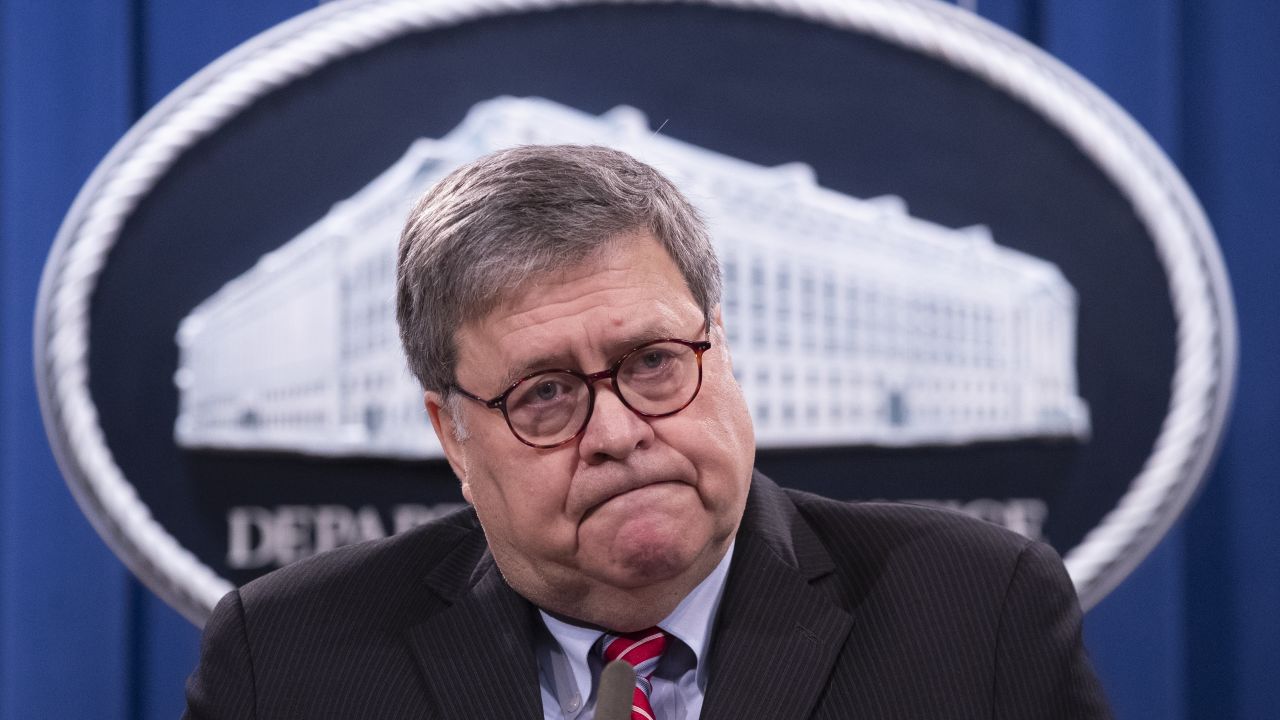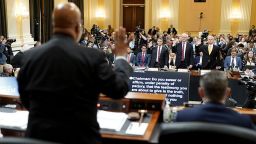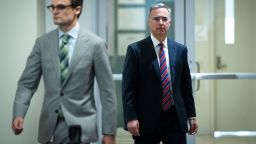Editor’s Note: Katherine Clayton is a PhD candidate in political science at Stanford University. Her research focuses on public opinion about democracy in the US and abroad. Robb Willer is a professor of sociology, psychology and organizational behavior at Stanford University. His research studies the social and psychological forces shaping Americans’ political attitudes. The views expressed in this commentary are their own. View more opinion on CNN.
Over the course of the January 6 hearings, Americans have heard detailed testimony rejecting allegations of widespread fraud in the 2020 election and exposing former President Donald Trump’s failed attempts to overturn the results. Much of this testimony has come from an unexpected source – prominent Republican leaders with ties to the Trump administration.


And, just last week, a group of eight prominent conservatives – including at least one official who was interviewed during the hearings – released a 72-page report categorically rejecting each claim made in court by Trump and his supporters about the election’s outcome.
Still, many commentators are pessimistic that the new evidence will “move the needle” among the large proportion of Republican voters who have lost faith in American elections. Are they right?
Or could the hearings, by spotlighting messages from Republicans who accept the election results, help restore faith in the legitimacy of American elections? Our research suggests they can.
In a recent experiment, we showed over 2,100 Republican voters several real messages from Republican politicians who have endorsed the legitimacy of the 2020 election results (others saw similar endorsements from Democrats, or no information about the election at all in a neutral “control” condition). We then asked the voters whether they believed that the 2020 election was legitimate – and about their trust and confidence in American elections in general.
Voters who saw the Republican messages in our experiment were five percentage points more likely to say that the 2020 election was legitimate than those who saw the Democratic messages or no election messages, and they were six percentage points more likely to say that they trusted the American electoral process. While these effects may seem modest at first glance, they reflect the potential for significant shifts in public opinion.
These effects also reflect the results of just one small set of election-affirming messages delivered over a period of a few minutes from the like of former President George W. Bush, Sen.Susan Collins of Maine, former US Attorney General William Barr – and others. There is reason to believe that continued coverage of Republican endorsements of the election results – such as those that have been featured repeatedly during the January 6 hearings – could have an even bigger impact, beginning the potentially long process of restoring bipartisan faith in our elections.
Additional research suggests our current crisis of election legitimacy was produced by a similar dynamic: public statements by Republican leaders. Research by one of us, published last year in the Proceedings of the National Academy of Sciences, found that Trump supporters who were repeatedly exposed to tweets from Trump questioning the integrity of US elections lost confidence in US elections and increasingly believed that elections were rigged. Simply put, Republican leaders seem to hold the unique power to make – or break – Republican voters’ trust and confidence in elections.
So, how do messages from Republicans influence voters’ attitudes? Examining our data further, we found that the effects appear to be driven by increases in voters’ perceptions of the proportion of Republican leaders who reject Trump’s claims. Voters who saw the Republican messages in our experiment perceived that a higher percentage of Republican politicians endorse the 2020 election results than voters in the other two experimental groups, and this view was associated with voters’ own election attitudes. This implies that as voters see more and more Republican leaders rejecting Trump’s claims, their attitudes are likely to shift, too.
Will the Republican Party face backlash if Republican candidates break ranks and endorse the 2020 election results? We measured whether the messages in our experiment impacted voters’ overall favorability toward the Republican Party and found that they had no effect on Republicans’ views. This is important because it suggests that rejecting the false claim of election fraud in 2020 is likely to have little impact on the party brand.
It’s less clear, however, whether endorsements of the election results impact how individual candidates fare at the polls. In several key battleground states, including Colorado and Georgia, moderate Republican candidates have defeated more extreme election-deniers in Republican primary elections, suggesting that not all Republican candidates pay an electoral penalty for questioning Trump’s claims.
In other states like Illinois and Utah, however, candidates with Trump’s support have fared better. While questions remain about how this will all play out in the midterm elections, it’s safe to say that many factors – beyond a candidate’s stance on the legitimacy of the 2020 election – are likely to shape a candidate’s fate at the polls.
When it comes to tackling voters’ skepticism about the legitimacy of the 2020 election, our findings suggest that continued media coverage of prominent Republicans endorsing the election results – a recurring theme of the January 6 hearings – does matter.
Without widespread confidence in elections, peaceful transfers of power in democracies are uncertain, increasing the risk of anti-democratic power grabs and societal instability. To address election skepticism, and to reverse the erosion of American democracy as we know it, we can only hope that Republican leaders will stand up and endorse the 2020 election results in greater numbers – and that media coverage will increase awareness of those Republicans who have already rejected Trump’s claims.
Perhaps our best hope for restoring bipartisan faith in elections is if events like the hearings encourage more Republican leaders to step up and dissent from Trump’s lies. If enough additional Republicans stand up, there is potential for a cascade of others to follow, creating a critical mass of Republican leaders endorsing the election results.
A recent analysis found that 37% Republican primary candidates and 25% of Republican nominees have not yet taken a stance on the legitimacy of the 2020 election, suggesting that there are many leaders who still hold the potential to make a difference. If these and other Republicans take a stand affirming the election results, there is reason to expect that a significant number of Republican voters will come to trust in elections once again.


